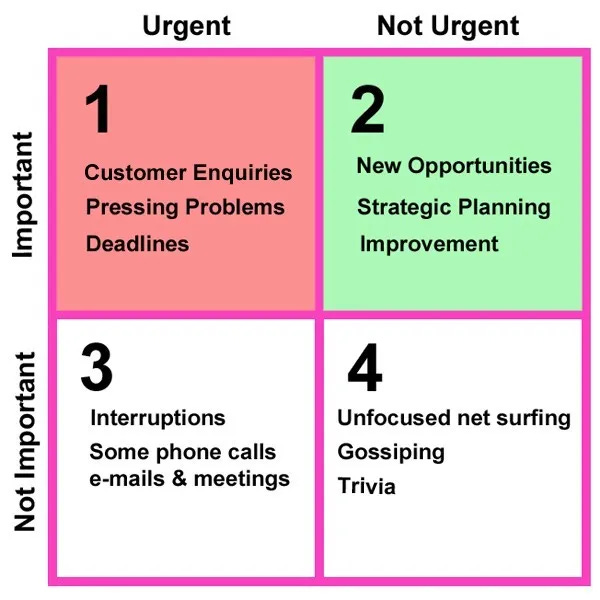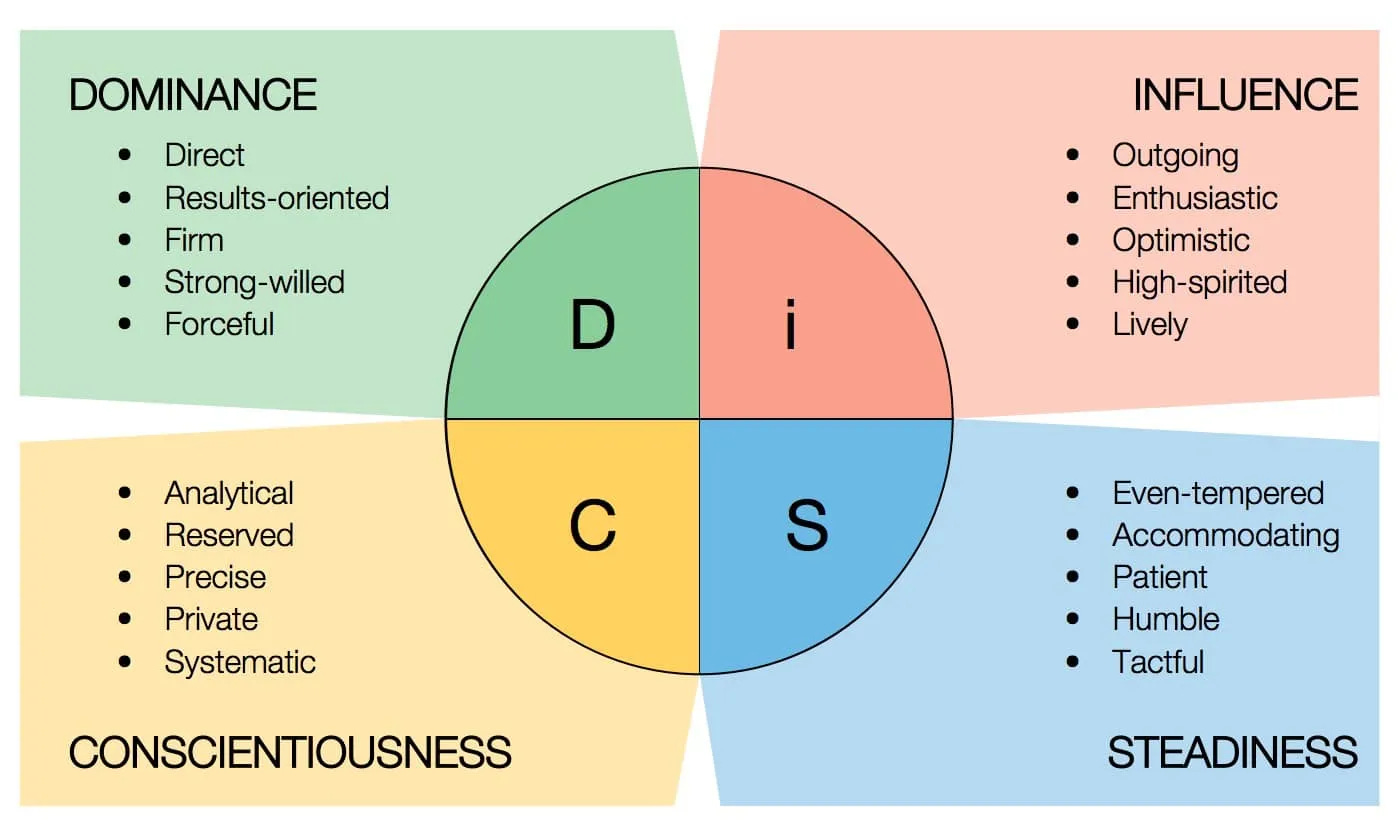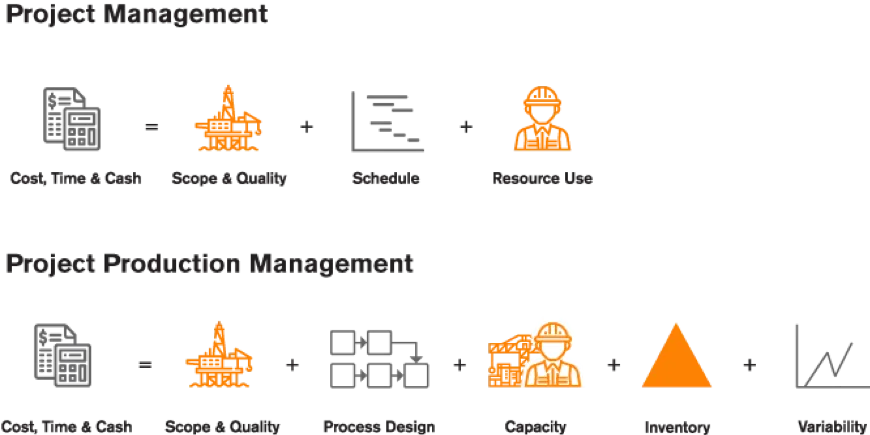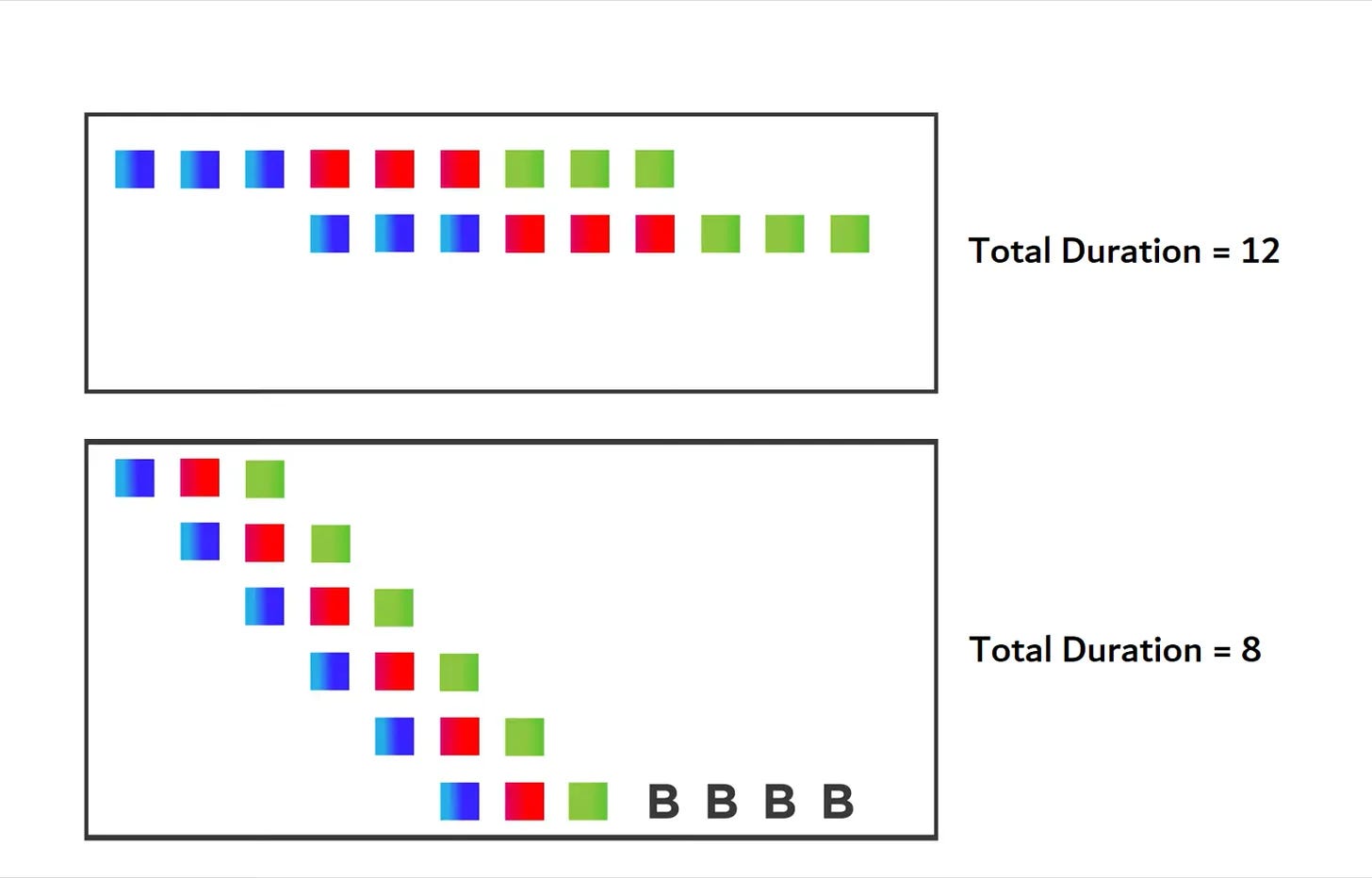👋 Hey, Kyle here! Welcome to The Influential Project Manager, a weekly newsletter covering the essentials of successful project leadership.
Today’s Overview:
When I was a kid, my first dream was to be a professional hockey player. I used to think becoming a professional happened in an instant, like flipping a switch. But I learned that being a professional is more about the processes, habits, mindsets, and systems.
A professional is not a professional because of a title, but because of how they think and operate. Adopting the habits and mindsets of a professional can help anyone improve their performance, create opportunities, and achieve success.
This article covers 12 differences between amateurs and professionals in project management that you need to understand if you want to start leveling up.
The Difference Between Amateurs & Professionals
Filed under: Leadership & Managing People, Learning & Growth
When I was a kid, my first dream was to be a professional hockey player.
This is a fairly common dream among children— there’s something about the glory and fame of being a victorious warrior that is quite compelling.
However, as my college career came to an end, I realized my skills weren't enough for a professional career, leading me to give up this dream.
After entering the “real world,” I watched some friends achieve their childhood dreams and others succeed in different fields. This observation made me realize a mistake in my thinking.
I used to think becoming a professional happened in an instant, like flipping a switch. But I learned that being a professional is more about the processes, habits, mindsets, and systems. In other words, a professional is not a professional because of a title, but because of how they think and operate.
Adopting the habits and mindsets of a professional can help anyone improve their performance, create opportunities, and achieve success.
Today’s article covers 12 differences between amateurs and professionals in project management that you need to understand if you want to start leveling up.
1. Amateurs aim for goals, Professionals perfect their systems.
Your project does not rise to the level of your goals. Your project falls to the level of your systems.
Professionals are process-oriented, meaning they focus on the daily habits, routines, and actions that lead to success. They recognize that achieving a goal is often a result of consistently following a system rather than solely fixating on the end result.
Amateurs tend to be more outcome-oriented, concentrating solely on the end goal without paying as much attention to the processes, systems, and strategies needed to achieve it.
Remember, the view from the summit is breathtaking, but it’s the climb that makes you strong. Build Systems. Not just goals.
2. Amateurs chase urgency, Professionals prioritize importance.
Amateurs are often reactive, constantly in a state of firefighting. They’re stuck on tasks that appear urgent but are not important.
Professionals concentrate on tasks that are important and build towards long-term success, even if they are not immediately urgent.
Instead of seeing problems and reacting to fix them, they anticipate problems in the future and do what it takes to prevent them.
3. Amateurs see paperwork, Professionals see pathways.
In project management, information is gold. Without it, production, flow, and knowing what will happen next becomes a real challenge.
While amateurs complain about documentation and handling RFI’s, professionals see the bigger picture. They understand these tasks carry risk and see them as a way to bridge the gap between what was planned and what is actually being built.
Professionals build a process, stick to it, and leverage RFIs and thorough documentation to their advantage.
4. Amateurs work without standards, Professionals set and enforce them.
Amateurs avoid enforcing standards to stay popular, but this only leads to trouble. A professional isn’t just a buddy. They stick to high standards and values, no matter what.
Professionals set clear rules for how things should be done. They make sure everyone knows and follows these rules.
They understand there might be push-back if they enforce the rules. But crossing the line has consequences. This is especially true for things like safety, cleanliness, quality, sticking to the plan, and being accountable.
Professionals stand by their standards. No excuses for bad behavior.
5. Amateurs match the mirror, Professionals match the moment.
The biggest reason we have unhealthy relationships isn’t because we’re surrounded by difficult people. It’s because we misunderstand our differences and are too set in our own ways.
Professionals make an effort to see things from someone else’s point of view. They respect their differences and adjust their approach accordingly.
Amateurs stick to their own ways, but professionals are flexible. They change their behavior to fit the situation and the people involved.
This flexibility helps professionals work well with others. They get why people act the way they do and adapt to make teamwork smoother.
Amateurs are bound to traits. Professionals adapt to needs.
6. Amateurs focus on schedule dates, Professionals focus on production rates.
The amateur approach to project management is on the demand side, the schedule. Who does what by when. They almost always forget about how things get done.
Professionals dive into how work happens so it flows right. They get the systems, the challenges, and how to optimize them.
Amateurs focus on the schedule which tells us what we want to have happen. Professionals focus on the production system that dictates what will happen.
7. Amateurs focus on speed, Professionals focus on flow.
The Efficiency Paradox: when focusing too much on speed in one area actually makes you less efficient overall. This happens because you overlook the entire process, and the most important aspects.
Professionals make sure work flows well together to minimize downtime and waiting periods. This way, the overall process progresses efficiently, and you surprisingly make the schedule shorter.
To make real progress, do two things: 1) get all parts of the project are moving in the right direction and 2) use resources where they make the biggest difference. Wasting energy elsewhere slows you down.
8. Amateurs think fast & act slow, Professionals think slow & act fast.
Planning is relatively cheap and safe. Executing is expensive and dangerous.
Successful projects follow "Think Slow, Act Fast." This means plan carefully, so you can execute quickly. Failed projects do the opposite “Think Fast, Act Slow”.
Amateurs like to speed through the planning phase with a “glass half full” mentality, leading to slow, reactive measures later due to a plan that didn’t work.
Professionals spend time creating detailed, tested, and reliable plans. This lets them act fast and sure when it's time to build.
9. Amateurs overlook the trades, Professionals cherish them.
Amateurs undervalue trade partners. Professionals know their strength comes from these relationships.
Amateurs:
Withhold payment without warning.
Refuse to take calls.
Badmouth to colleagues or on social media.
Demand refunds for money already paid.
Threaten legal action.
Demand work not already stated in the contract.
Professionals:
Look in the mirror - are you part of the problem?
Pick up the phone
Find the foreman and walk the job
Develop a plan
Provide support and offer assistance
Express Appreciation
Their success is your success. When in doubt, communicate and work it out.
10. Amateurs command & control, Professionals lead with vision.
“If you want to build a ship, don’t drum up the men to gather wood, divide the work, and give orders. Instead, teach them to yearn for the vast and endless sea.” - Antoine de Saint-Exupéry
Where amateurs command and dictate, professionals guide, showing the bigger picture and building a shared mission.
Professionals know that when people are inspired by a common vision, they bring more creativity, passion, and commitment to their work.
They lead their teams by setting a clear, compelling direction that connects each person's work to a larger purpose.
11. Amateurs go all in on hard skills, Professionals go all in on soft skills.
Hard skills get you in the door, but soft skills keep you in the room.
Technical skills matter, but professionals value skills like:
Communication: Ability to effectively explain, write, articulate, and public speak.
Problem-Solving: Ability to figure out what is wrong and how to resolve it.
Collaborative Leadership: Ability to work with others across boundaries to make decisions.
Strategic Thinking: Ability to see patterns and alternative paths rather than complexity.
Yes, technical skills are important, but so is understanding interactions between people.
At the end of the day, projects are built by humans.
12. Amateurs live to work, Professionals work to live.
Truth is, working too many hours is masking waste and ineffectiveness.
To be a peak performer, work less and play more. You can work less than 50 hours/week and still supersede expectations as the leader on your project.
Amateurs:
Works long hours
Has no defined goals, works to be active
Cannot delegate
No interests outside work
Misses vacations to work
Is always busy doing things
Professionals:
Works regular hours
Has defined goals - works toward a major objective
Delegates as much as possible
Several interests outside of work
Takes and enjoys vacations
Can enjoy "goofing off"
Limiting your work hours will force you to remove waste and focus on what really moves the needle.
It will drive you to be better, to delegate better, and to organize your work. You learn to do the work of 2 or 3 people.
Final Thoughts
The truth is that we can all "go pro" in whatever we are doing—it simply requires us to adopt the ways of the professional.
Great leaders, high-performance teams, and exceptional organizations all embrace these philosophies.
Internalize these 12 differences between amateurs and professionals to get started on your journey.
I'd love to hear from you:
What other differences between amateurs and professionals have you observed?
When did you realize you had made the leap from amateur to professional?
Until next week,
Kyle Nitchen
LAST WORD 👋
How am I doing?
I love hearing from readers, and I’m always looking for feedback. How am I doing with The Influential Project Manager?
Is there anything you’d like to see more of or less of? Which aspects of the newsletter do you enjoy most?
Hit reply and say hello - I’d love to hear from you!

When you're ready, here’s how I can help:
Upgrade your PM software. Project financials, management, and construction admin. Switch to INGENIOUS.BUILD to evolve from an administrative project manager to strategic project leader.
Get my full toolbox (free). It contains 30+ software and hardware tools I’m using today.
Hold your schedule accountable. Gain stability and flow in your projects with this Takt Planning & Control online course. Use code “Influentialpmtakt” for 30% off!
Advertise in this newsletter. Put your brand in front of 2,500+ construction project managers, leaders, and execs. (Booked out 5 weeks)
Support this Newsletter. The Influential Project Manager articles will remain free, but if you find this work valuable, I encourage you to become a paid subscriber. As a paid subscriber, you’ll help support this work.











Goals versus systems - I think about this a lot. I need both, but it is important to remember to enjoy the journey (and your systems).